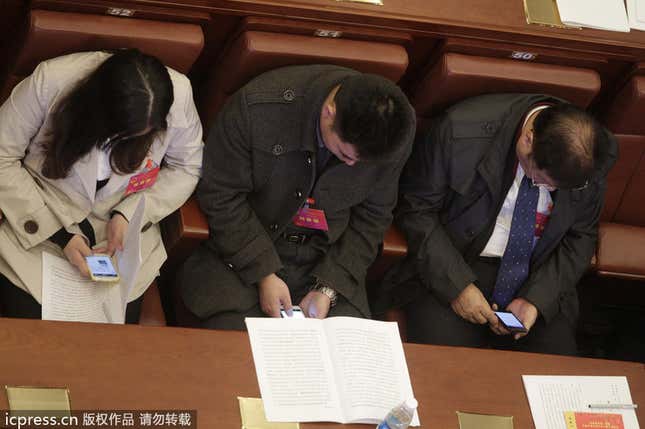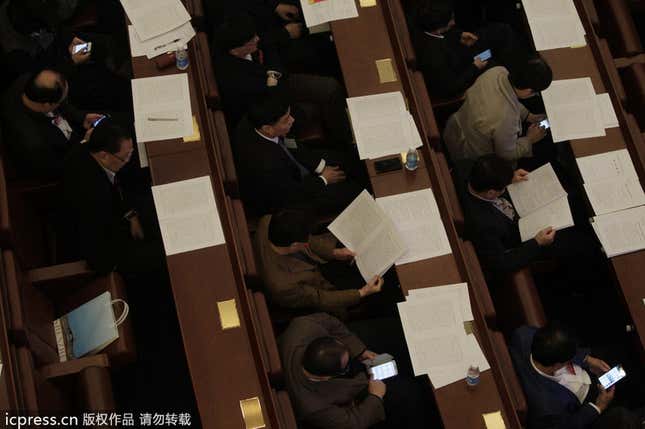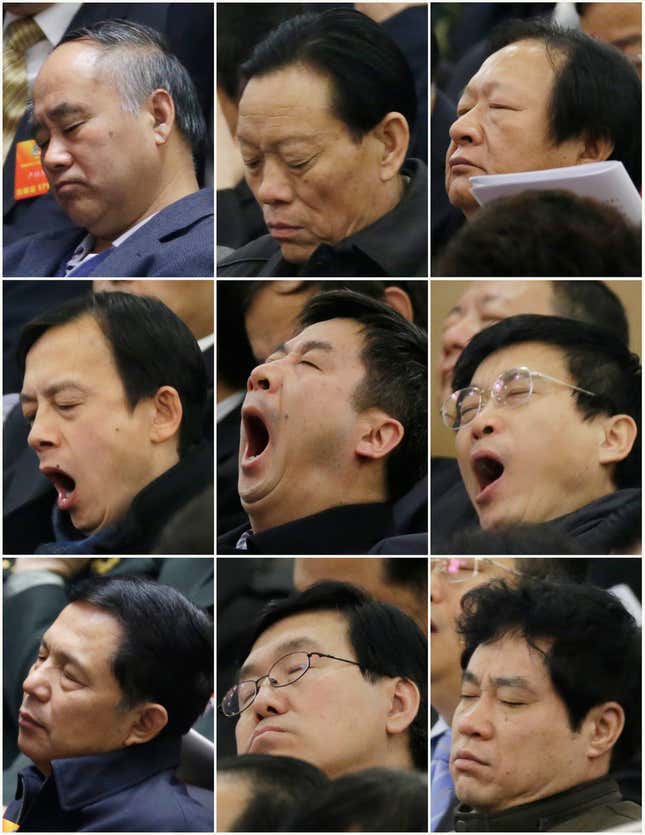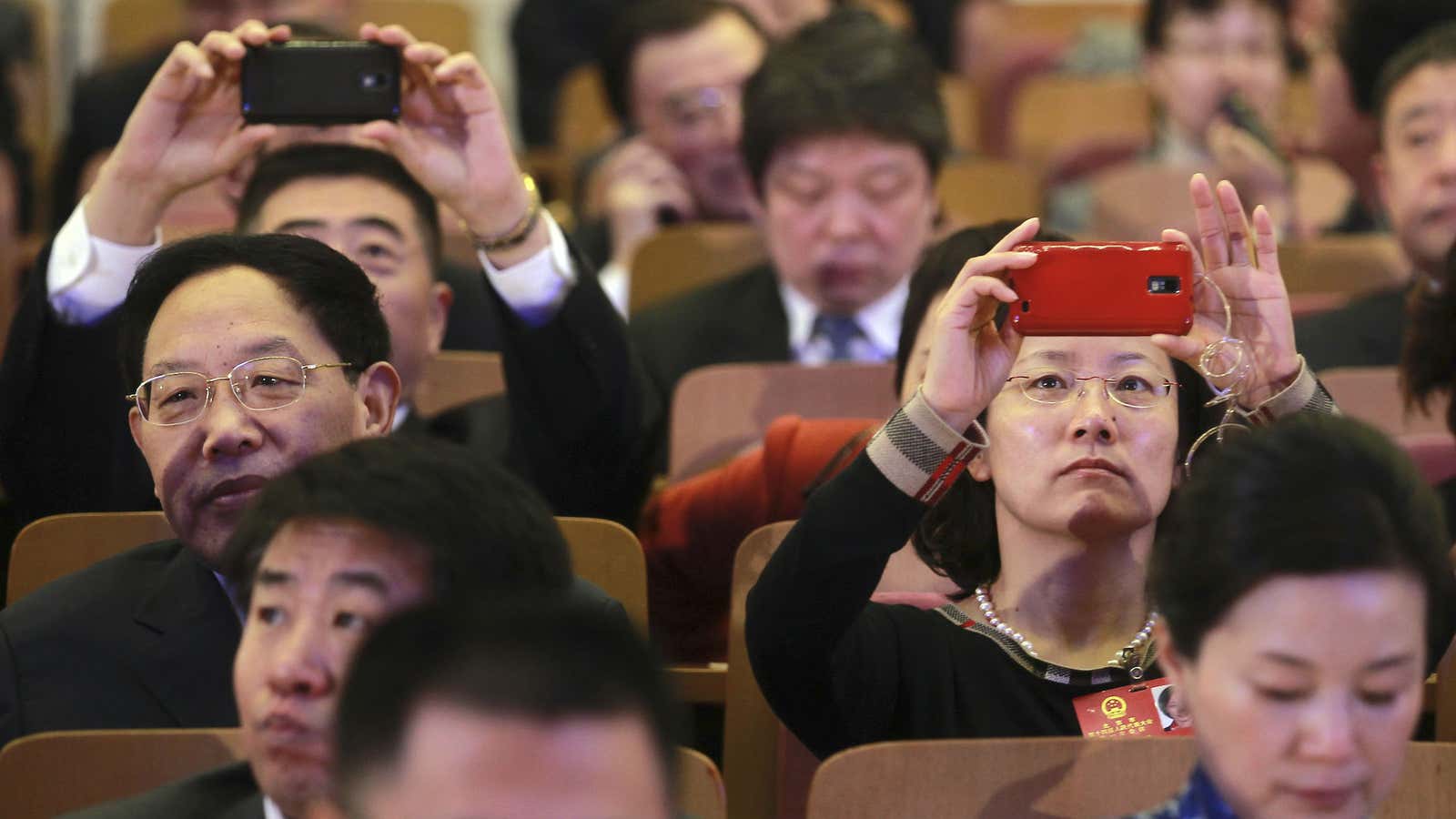China’s National People’s Congress–a parliamentary session that exists to rubber stamp new laws and policies—is meant to be a show of unity for the Chinese communist party. That’s especially important for this year’s NPC, which starts on March 5, as it’s the first since chairman Xi Jinping and premier Li Keqiang took the helm.
So officials are taking special pains to stage-manage the 10-day conference. ”Do not use your phones to send text messages or make phone calls during meeting; do not use your computer or phone to play games,” stated new rules (link in Chinese) published by the state-owned Beijing Youth Daily. ”Representatives are not allowed to use means such as Weibo and Wechat to live broadcast the conference.”


Officials at the NPC and local-level conferences have repeatedly been caught fiddling with their phones during these meetings. Last year, officials in the province of Chongqing also advised delegates to not to text their friends on the popular messaging app or to shop online. (To be fair, this seems to be a world-wide problem: In 2012, three Indian politicians were caught watching pornography while parliament was in session and this month, a Hong Kong lawmaker apologized for looking at scantily clad models on his tablet during a budget meeting.)
In China, the uncontrolled use of personal technology at these meetings poses a few problems. Photos posted online by delegates or taken by news photographers have given Chinese bloggers opportunity to identify public figures wearing designer clothes beyond what they should be able to afford on government salaries. Beijing is trying to gain control of online conversation by opening more government accounts on Sina Weibo (paywall), and this year the press center of the NPC will be posting on its own WeChat account.
Delegates have also been told not to seek autographs with leaders like Xi or Li or shower them with gifts of local delicacies. They’ve also been asked to write their names on their complimentary bottles of mineral water and make sure to finish them.
Officials are also trying to liven up the conference, which is known for putting delegates to sleep. Speakers have been instructed to limit their remarks to no more than 10 minutes. A bulletin for all delegations asks that speakers “not to read from a script” and try to use a more “pleasant and refreshing” intonation. Moreover, they should stick to the topics on hand and avoid generalities and opening pleasantries. But more than likely, quite a few people’s delegates will still end up looking a lot like these guys:

Jennifer Chiu contributed additional reporting.
